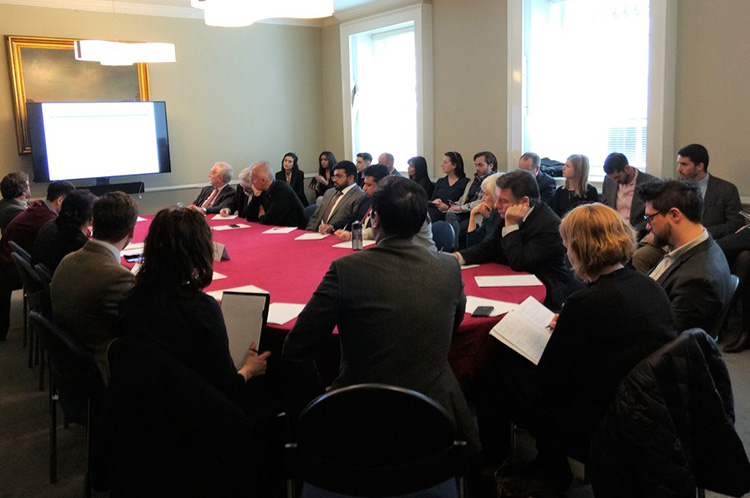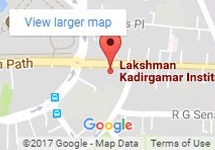
Reading Time: 2 min read
Dr. Ganeshan Wignaraja, Chair of the Global Economy Programme at the Lakshman Kadirgamar Institute of International Relations and Strategic Studies (LKI) recently made two invited presentations in London on the topic of China in South Asia; one at the South Asia Centre of the London School of Economics (LSE), and the other at Chatham House.
Dr. Wignaraja at the LSE
At the LSE South Asia Centre, Dr. Wignaraja spoke at the South Asia Summit 2018 on 10 March 2018, a conference that debated topics of pan-South Asian significance. The LSE South Asia Centre aims to work with individuals, organisations, think tanks, the media, governments and parastatal institutions to debate South Asia among its constituent countries and with the world at large, through multi-faceted dialogue and debate, and to position South Asia as a dynamic global region influencing wider challenges and powers.
During the session titled “Is China South Asia’s Principal Ally?,” Dr. Wignaraja explored China’s increasing geopolitical influence in South Asia over the past few years including via and trade agreements and systematic investments in infrastructure like the China-Pakistan Economic Corridor, the proposed project of a Bangladesh-China-India-Myanmar Economic Corridor, and the 99-year lease of Sri Lanka’s port of Hambantota. He noted that while India has occasionally been successful with ‘soft power’ initiatives like gifts of ambulances, it has never made that a consistent feature of its international relations. He stated that, on the other hand, relations with China have brought a lot of visible results, including three iconic buildings in Colombo. The panel discussion was moderated by Dr. Rahul Roy-Chaudhury of the International Institute for Strategic Studies, London.
Dr. Wignaraja at Chatham House
Dr. Wignaraja also spoke on 14 March 2018 at the renowned think tank, Chatham House, on “China’s Outlook and Changing Role in South Asia.” Chatham House, the Royal Institute of International Affairs, is an independent policy institute based in London. Dr. Wignaraja discussed the opportunities for closer economic cooperation between China and South Asia, in light of China’s slowdown and India’s economic reforms. He also outlined China and India’s economic outlook for 2018-2020 and beyond, and examined the political challenges to rising Chinese influence in South Asia, as well as how powers in Europe and the US can prepare for a multipolar world economy. He concluded that China would see a soft growth landing amid an uncertain global upturn and that its economic ties in South Asia would increase. He argued for increased regional cooperation in Asia to maximize the benefits of these developments. The seminar was attended by over 50 academics, diplomats, and government officials.
About LKI
The Lakshman Kadirgamar Institute is a think tank which analyses Sri Lanka’s international relations and strategic interests, to provide insights and recommendations that advance justice, peace, prosperity and sustainability. It reflects the vision of the late Hon. Lakshman Kadirgamar by promoting the country’s intellectual profile in foreign policy research and engagement. Dr. Ganeshan Wignaraja is Chair of the Global Economy Programme (supported by Dilmah) at LKI.
Photos: LSE South Asia Center and Chatham House



